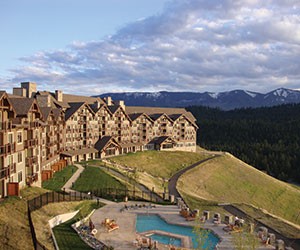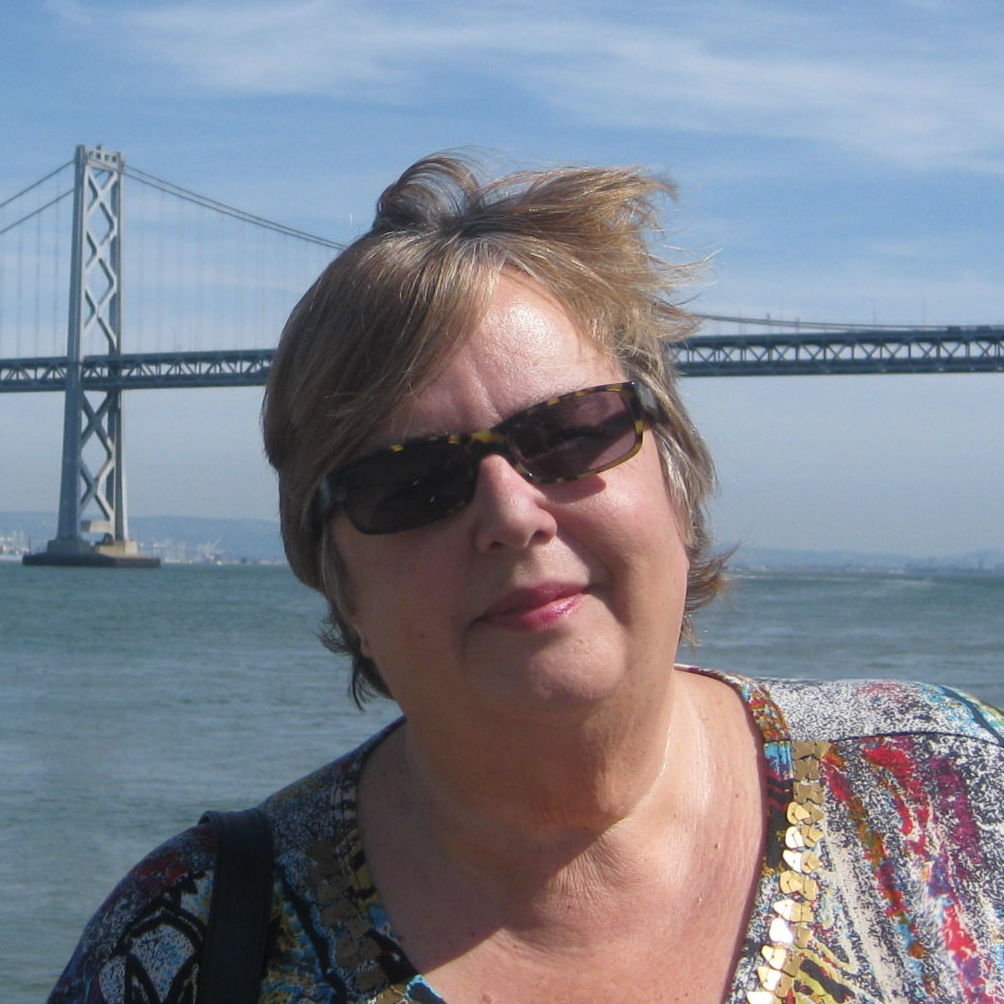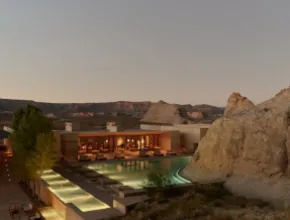With regional meetings on the upswing, gas prices dropping and air service to smaller airports on the decline, a variety of forces are aligning to encourage the drive-to meeting.
That associations and corporations alike are holding more meetings within easy driving distances for attendees is evidenced by two recent surveys from PCMA and American Express, both of which cite a continuing increase in the number of regional meetings held during the past two years.
“Meeting planners revealed that companies are expecting to keep meetings close to home by looking to hold more meetings within their region and/or their own facilities,” says Issa Jouaneh, vice president and general manager of American Express Meetings & Events. “Compliance, cost and travel time are all noted as top drivers of the trend, as companies seek alternative ways to control costs and reduce time away from the office.”
At the same time, travelers are finding significantly fewer flights to second- and third-tier destinations, with a report from the U.S. Government Accountability Office noting service to smaller airports has decreased by 24 percent since 2007.
With all that in mind, here’s a look at six top options when hosting a drive-to affair.
Providence, R.I.
Among cities where the drive-to market is taking on greater importance is Providence, R.I., which experienced a 20 percent surge in the number of visitors arriving by car this past summer, according to Tom Riel, vice president of sales and services for the Providence Warwick CVB. While many were leisure travelers, many were also meeting attendees, particularly from associations based in the New England area, he says.
“Air service is down—as it is practically everywhere—and yet our hotel occupancies are continuing to grow,” he says. “So we know the drive market is behind this. With smaller and more crowded planes, flying these days is not a pleasant experience.”
Providence, which in the past has promoted itself as a “One-Tank Meetings” destination, emphasizes its convenient location to meeting planners.
“Twenty percent of the U.S. population is within a two-hour drive of Providence and the I-95 corridor bisects our community,” Riel says.
Along with accessibility, Providence promotes its relatively smooth traffic flow and parking availability. The city also works with planners to address the needs of attendees arriving by cars, Riel says.
“Our convention center has thousands of parking spaces and there are many nearby lots as well,” he says. “If a large group is coming in, we’ll provide a customized map of the parking areas and we’ll also alert the parking operators, so they can anticipate the resurgent business.”
Wilmington, Del.
Another hot spot for drive-to meetings is Wilmington, Del., which promotes a convenient mid-Atlantic location on the I-95 corridor that draws regional business from Washington, D.C., on up to New York City and beyond, says Jessica Bittmann, director of sales for the Greater Wilmington CVB.
“Drive-to meetings are a very strong base for us, especially when an organization is trying to draw from Philadelphia, New York or Baltimore,” she says. “We’re not only convenient, but our costs are considerably lower because we have no taxes on food and beverage and our occupancy taxes are low. And many of our hotels do not charge for parking.”
While meeting business has been flat for Wilmington during the past few years, Bittmann says there has been a surge in bookings for 2017 and 2018, some of that coming from the regional association market.
“Association planners are telling me they are looking to do more regional events,” she says. “It’s a good way to keep costs down and also address the particular issues facing a chapter or region.”
PageBreak
Omni Homestead Resort, Hot Springs, Va.
Within a few hours of much of the Southeast and Mid-Atlantic regions and even some of the Midwest, drive-to meetings are “bread and butter” for the Omni Homestead Resort, according to Jeff Ford, director of sales.
“We have found that anything less than a six-hour drive is a great target market for us,” he says. “By the time you get to the airport, deal with security and possible delays, you’re often not saving any time by flying. We target everywhere from Cincinnati down into South Carolina.”
State and regional association meetings comprise a majority of business for the 483-room resort on a wooded 2,000-acre setting in the Allegheny Mountains of western Virginia. The historic property has 72,000 square feet of meeting space and extensive activities that include golf, spa, fly-fishing, falconry, ice skating and many others.
In honor of its 250th anniversary next year, the Homestead is promoting special rates and activities to the group market.
“We will have fireworks and special events all next year that planners can tie into their own programs,” Ford says.
Grand Geneva Resort, Lake Geneva, Wis.
In the upper Midwest, the Grand Geneva Resort in Lake Geneva, Wis., is a popular getaway for meeting groups seeking a laid-back lakeside environment within easy driving distance of several metro regions.
“We do a great mix of association and corporate business for drive-in meetings because we’re so centrally located from Chicago and Milwaukee,” says Lauren Vernick, director of group sales for Grand Geneva Resort. “We’re just a 45-minute drive from the Chicago suburbs where a lot of corporate business is headquartered.”
Not surprisingly, the resort promotes its locale heavily to regional associations, where attendees may be driving from as far afield as Minnesota, Iowa and Indiana.
“From a lot of these places, it’s no more than a three- or four-hour ride to get here,” Vernick says. “It’s more relaxing than flying—and there’s not a lot of traffic heading into Lake Geneva.”
The resort also emphasizes its relative affordability for a drive-to.
“Unlike a downtown destination, we offer complimentary self-parking and lots of it,” she says. “Even if we have multiple groups coming in at the same time, we can get creative with overflow parking, even using our airstrip.”
Set on 1,300 acres, the 355-room resort offers a full four-seasons roster of activities and amenities, including golf, a water park, horseback riding, volleyball, tennis, cross-country skiing and sledding.
PageBreak
Suncadia Resort, Cle Elum, Wash.
Just a 90-minute drive east from Seattle over the scenic Snoqualmie Pass, Suncadia Resort, A Destination Hotel, has found a huge drive market among tech corporations looking for a place to unplug. Encompassing 6,400 acres on the eastern slopes of the Cascades, Suncadia offers amenities that include two golf courses a huge indoor/outdoor pool, a full-service spa and an on-site winery. There are accommodations for groups of up to 300, including luxury homes and two hotels, the Lodge at Suncadia and Inn at Suncadia.
“For companies like Microsoft, Amazon and Costco, we’re a little more than an hour away and yet are a world away,” says Mike Rayburn, director of sales. “What we emphasize to planners is that we’re a change of pace, a break form the norm. We get feedback that this is a place to spark creativity.”
Along with corporate business, state and regional associations are another strong market, he adds.
“We’re pretty much in the center of Washington, so we’re an easy drive from Spokane as well as Seattle and Tacoma,” Rayburn remarks. “We’re also easily reached from Idaho as well as the Portland area.”
Suncadia, which has steadily expanded its offerings since opening in 2007, is about to unveil enhanced event space at Nelson Dairy Farm, a circa-1900 farmstead set in a lush meadow with a resident elk herd.
Monterey, Calif.
With the tech economy in full swing in the San Francisco Bay Area, it’s little wonder that Monterey County, just 90 minutes to two-and-a-half hours away by car, is seeing a boom of its own with the meetings drive market.
“We’re having an incredible year, particularly from corporate business based in Silicon Valley and San Francisco, our two biggest feeder markets,” says Scott Wilson, vice president of sales for the Monterey County CVB. “Many people are overworked these days and we offer them a chance to find inspiration and motivation.”
Local hotels and the Monterey Conference Center are stepping up their game with major investments in renovation. The conference center, which is currently closed until October 2016, will emerge as a redesigned contemporary facility with updated technology, more flexible meeting space and Silver LEED certification.
While corporate groups have long been attracted to the stellar golf courses and luxury resorts of the Monterey Peninsula, Wilson adds there is increasing interest in the agricultural bounty of the Salinas Valley and wineries along the Carmel Valley.
“There’s a really great partnership now between the Silicon Valley and the Salinas Valley, coming from tech companies who want to develop advanced farming techniques,” he says.







